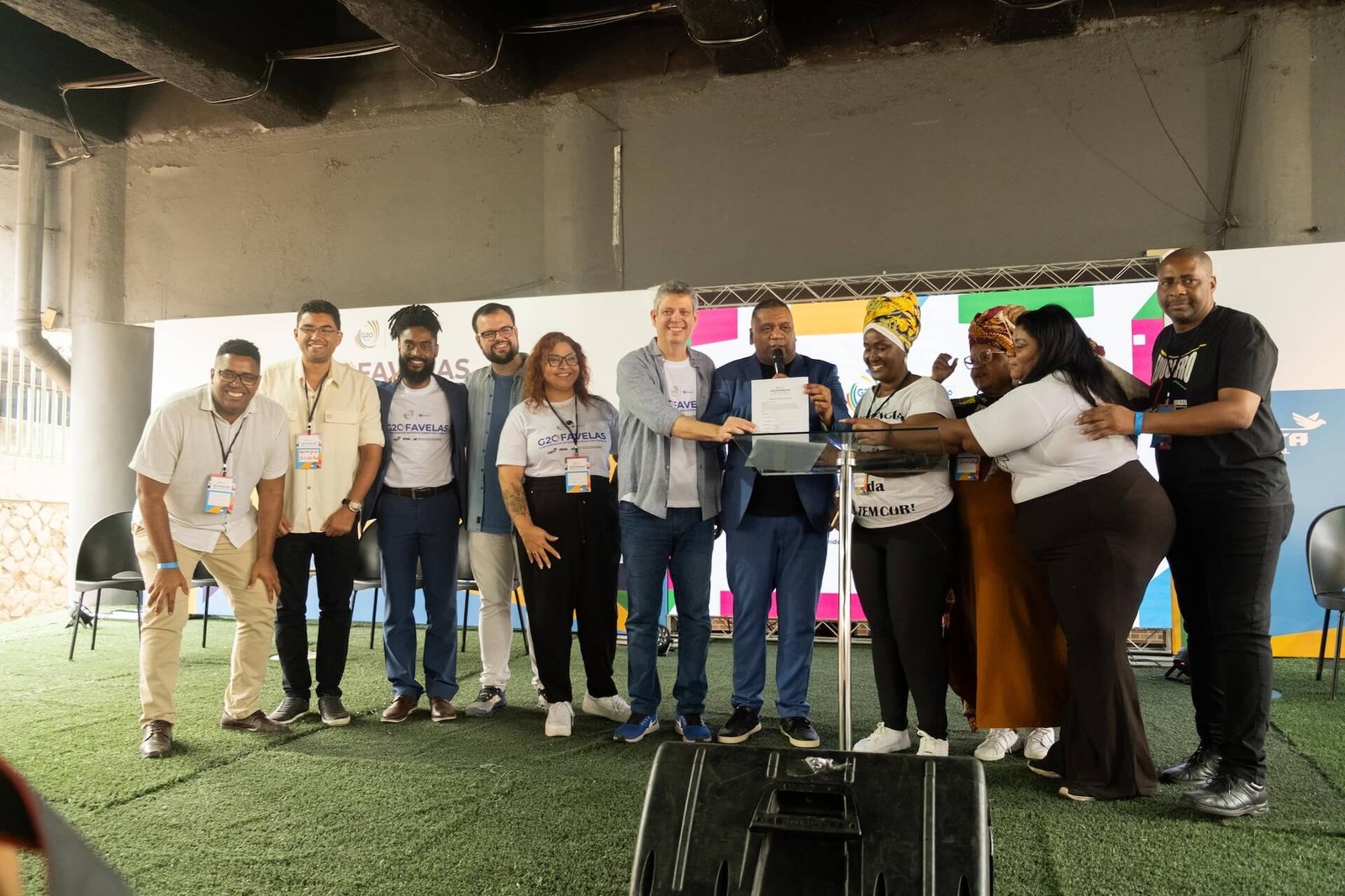G20 Favelas promotes simultaneous conferences throughout Brasil
The meeting launches the F30 climate initiative and is a preparation for the Global Favela Forum that will be held in October. Proposals will be forwarded to the G20 Social Summit and to the meeting of the forum's heads of state, both to be held in Rio de Janeiro in November.

This Saturday, August 24, the G20 Favelas, a group created by the Unified Center of the Favelas (CUFA), the Parliamentary Front of Favelas and the National Antiracist Front (FNA), held 21 state conferences throughout Brasil. The event held in the state of Rio de Janeiro took place at the CUFA headquarters in Madureira and was attended by Preto Zezé, president of CUFA Rio, Elaine Caccavo, co-president of CUFA Rio, and Márcio Macêdo, Minister of the General Secretariat of the Presidency, as well as other prominent figures. During the event, the F30 climate initiative was announced, which will be a contribution from favelas to the climate agenda for 2025.
The meeting mobilized thousands of people from the favelas, including leaders, residents and supporters, focusing on debates for solutions in these areas. The proposals presented at the meeting will be discussed at the national event, which will take place at the Global Favela Forum in October, and the most prominent proposals will be presented at the G20, scheduled for November in Rio de Janeiro.
"Today was a success, not only for Rio de Janeiro, but for the whole country. We demonstrated that when we come together to mobilize the population on the issues that affect favelas, we can make a difference. CUFA played a crucial role, as did the National Antiracist Front and the Parliamentary Front, which helped us build effective public policies. What we have done today is historic, providing a voice to the favelas so that they can define their own future, serving as an example to the world", says Celso Athayde, Founder of CUFA.
Proposed solutions highlighted during the conference
Infrastructure and Urbanization: improving housing conditions, basic sanitation, access to drinking water and adequate urban infrastructure;
Public Security: reducing violence and reinforcing security policies that respect human rights;
Education: access to quality education, with well-equipped schools and support programs for young people and adults;
Health: expansion and improvement of health services, with special attention to mental health and disease prevention;
Human Rights and Social Inclusion: fighting racism, discrimination and promoting social inclusion and equality policies;
Environment and Sustainability: actions to tackle the impacts of climate change and promote sustainable practices in communities.
The G20 Favelas offers an unprecedented opportunity to dialogue with the 19 economic powers in order to build effective public policies based on the narrative of those who live the problems.